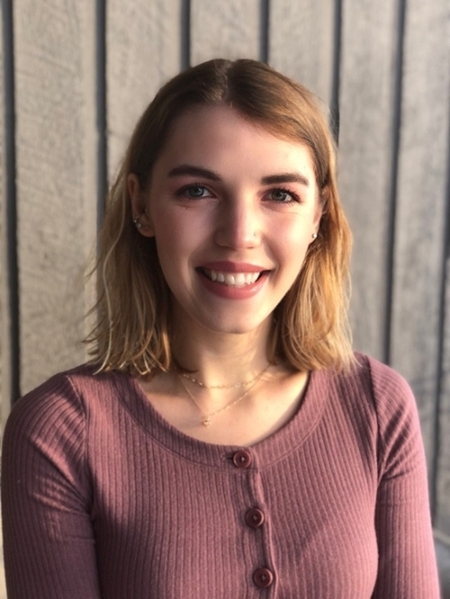
USask ArtSci graduate builds career from undergraduate research experiences
“The best researchers are those that are continuing to learn.”
By Brooke KleiboerTerava Groff received her Bachelor of Science (Honours) degree in Environmental Earth sciences from the USask College of Arts and Science at the university’s 2021 convocation ceremony. Her Honours project supervisor was Dr. Barrie Bonsal (PhD), Adjunct Professor in Geography, and Craig Smith (MSc), both research scientists at Environment and Climate Change Canada (ECCC). Her summer research assistant position in plant ecology was supervised by Dr. Jonathan Bennett (PhD), Assistant Professor in the College of Agriculture and Bioresources.
A student's guide to getting started
Did you ever have the chance to build a volcano in fourth grade science class, or a solar system out of foam spheres and paint?
These types of projects captivated Terava and launched her entrance into the world of post-secondary research.
“My favorite part of elementary school was conducting science research projects,” said Terava. “Moving forward to university, many of my classes throughout my degree have had research components.”
“From small projects to being surrounded by professors who are conducting research, my interest in research developed. While conducting research you are constantly learning and that is something I have enjoyed doing since I was very young.”
As her education progressed, she began to look further into research options.
“I chose to do a Bachelor of Science Honours degree, which requires an undergraduate honours thesis, so that is all research based,” she said.
Opportunities abound
In Terava’s field, Environmental and Earth sciences, there are many different research areas to consider. Terava found her core interests in hydrology, climatology and meteorology, but has pursued research work in multiple areas of environmental science.
“As an undergraduate student my interests change all the time and so it is beneficial to try different areas of research within your degree to narrow down areas you like and areas you don’t like,” said Terava.
Some of the various projects, positions and subject areas she has sampled includes:
- Plant ecology through a research assistantship with the USask College of Agriculture and Bioresources
- Aquatics through a research assistantship with ECCC, examining the ecological impacts of riverine systems in Western Canada
- An Honour’s thesis focused on analyzing hydrological responses to climate change in Northern and Western Canada
In summer 2021, Terava is working with ECCC as a research assistant through her department’s co-op program, based in the Alberta mountains. Her team’s research was focused on changes in the supply and demand of water for agriculture, due to the impacts of climate change in western Canada.
“I was able to work in a research-based position over two summers and part time throughout my last three terms of university,” she said.
“I also found [research to be] a rewarding experience; very different from just receiving a grade for memorizing material and writing exams. My research experience is really where I have developed the most valuable skills for the future.”
As Terava demonstrates, there are many avenues when looking for undergraduate research opportunities.
Life lessons from the field
Terava accumulated an array of lessons along the way.
“I have learned that not everything goes as planned and to accept that,” Terava said.
“It is good to have an idea of what the main goal, objective or outcome is. However, it is rare that everything runs one hundred percent smoothly and turns out exactly how you thought it would. This is something that I struggled with throughout university, as I am a huge planner. It is one of the most valuable lessons I will learn.”
Along the same lines, do not feel intimidated by the prospect of taking on research work or by time pressure. Not every student finishes their degree in the typical four-year timeline; in fact, many students choose to pursue experiences in research, going abroad or taking employment for a period before graduation.
“Don’t be stuck on the idea that you have to finish your undergraduate degree in three or four years,” she adds.
“If you finish a year or two later because you are taking a detour with research opportunities, it will pay off in the end. Experience is key!”
After an array of research experiences, Terava plans on pursuing her Master of Science degree in Geography beginning in September 2021 at USask.
“Amazing opportunities arise when you put yourself out there.”

